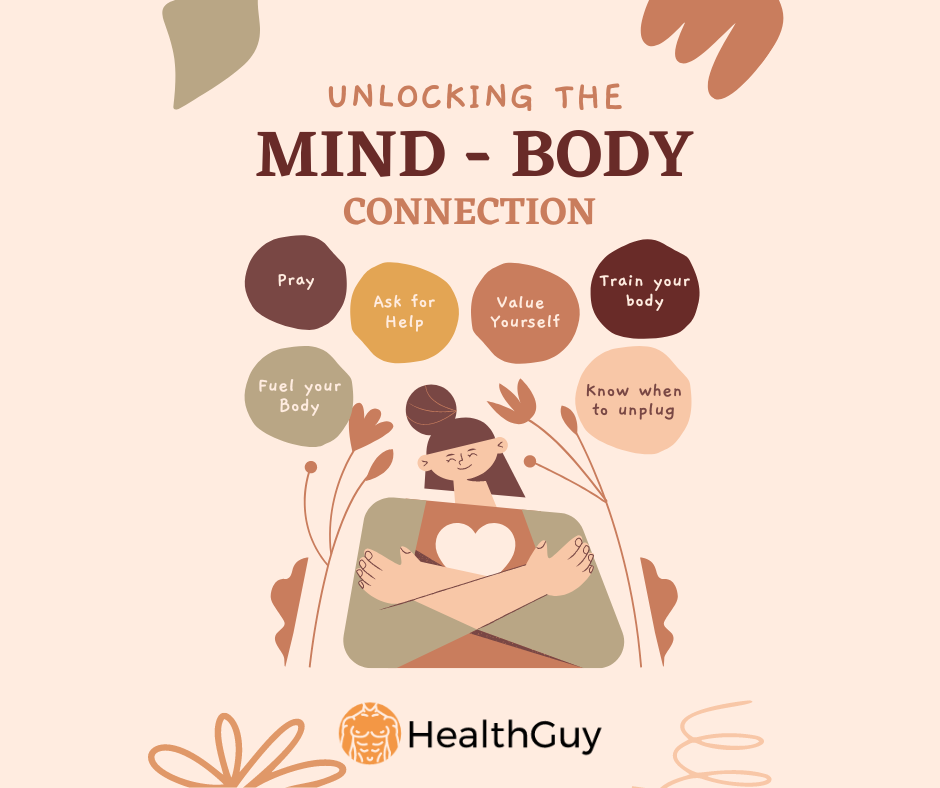
Unlocking the Mind-Body Connection: Emotions and Health
Did you know that your emotions can have a profound impact on your physical health?
The mind and body are intricately connected, and the way you think and feel can influence your overall well-being. In this article, we will explore the fascinating mind-body connection and delve into how emotions can influence your physical health. By understanding this connection, you can take proactive steps to optimize both your emotional and physical well-being.
Understanding the Mind-Body Connection:
The mind-body connection refers to the complex relationship between your thoughts, emotions, and physical health. It recognizes that your mental and emotional state can have real effects on your body. Research has shown that negative emotions, such as stress, anxiety, and sadness, can contribute to the development or worsening of physical ailments. Conversely, positive emotions can have a beneficial impact on your overall health and well-being.
The Effects of Chronic Stress:
Chronic stress is one of the primary contributors to the mind-body connection. When you experience prolonged periods of stress, your body releases stress hormones like cortisol, which can lead to various health problems. It can weaken your immune system, increase the risk of heart disease, disrupt sleep patterns, and even contribute to digestive issues. Moreover, chronic stress can exacerbate existing conditions such as asthma, diabetes, and arthritis. Managing and reducing stress levels is crucial for maintaining good physical health. Engaging in stress-reducing activities like exercise, meditation, deep breathing exercises, and spending time in nature can help promote a healthier stress response and overall well-being.
The Impact of Positive Emotions:
On the flip side, positive emotions can have a profound impact on your physical health. When you experience joy, happiness, and contentment, your body releases chemicals like endorphins, dopamine, and oxytocin, which promote feelings of well-being. These positive emotions can boost your immune system, lower blood pressure, improve heart health, and enhance overall resilience against illnesses. They also contribute to improved cognitive function, better sleep, and increased longevity. Cultivating positive emotions can be achieved by engaging in activities that bring you joy, spending time with loved ones, practising gratitude, and finding meaning and purpose in life.
Emotions and Digestive Health:
Your emotions can significantly impact your digestive system. Stress and negative emotions can disrupt the normal functioning of your digestive tract, leading to issues such as stomachaches, bloating, constipation, and even irritable bowel syndrome (IBS). Stress triggers the release of stress hormones, which can cause increased sensitivity in the gut, alter gut motility, and impair digestion. Finding healthy ways to manage your emotions, such as through relaxation techniques or therapy, can positively influence your digestive health. Incorporating stress management practices, maintaining a balanced diet, and being mindful of your eating habits can support a healthier gut.
The Role of Emotions in Pain Perception:
Emotions can also influence the way we experience pain. Negative emotions can amplify pain sensations, making them feel more intense and overwhelming. For example, stress and anxiety can heighten pain sensitivity and make chronic pain conditions more challenging to manage. On the other hand, positive emotions can have a pain-relieving effect and help reduce discomfort. Techniques like distraction, relaxation, and positive visualization can help alleviate pain by modulating emotional responses and improving pain tolerance. Integrating mind-body approaches like meditation, biofeedback, and cognitive-behavioural therapy can contribute to a better pain management strategy.
Cultivating Emotional Well-being:
To foster a healthy mind-body connection, it’s essential to prioritize your emotional well-being. Engaging in activities that bring you joy, such as hobbies, spending time with loved ones, or practising mindfulness and relaxation techniques, can help promote positive emotions. Taking care of your mental health through self-care, seeking support when needed, and practising stress management techniques can have a significant impact on your overall physical health. Additionally, practising good sleep hygiene, maintaining a balanced and nutritious diet, and engaging in regular physical activity are essential components of emotional well-being and overall health.
Conclusion:
The mind-body connection underscores the powerful influence that our emotions have on our physical health. Understanding this connection allows us to recognize the importance of addressing emotional well-being as an integral part of maintaining good overall health. By managing stress, fostering positive emotions, and nurturing our emotional well-being, we can positively impact our physical health and lead happier, healthier lives. Remember to prioritize self-care, seek support when needed, and engage in practices that promote emotional well-being. By doing so, you can harness the incredible potential of the mind-body connection for optimal health and well-being.
